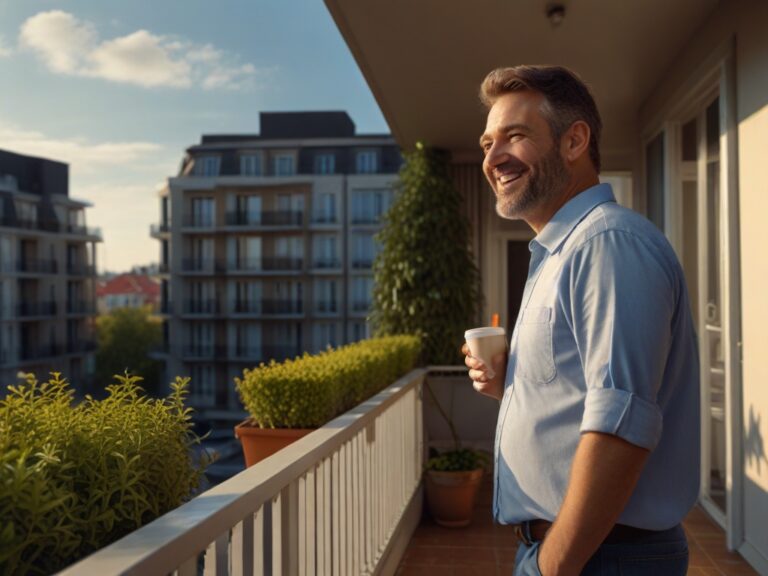Balcony Safety Regulations in California for Renters and Homeowners

Table of Contents
Why Do Balcony Safety Regulations Matter?
What Are the Inspection Requirements Under Balcony Safety Regulations?
What Should Renters and Homeowners Do to Stay Compliant?
Case Study: A Lesson in Balcony Safety
Balcony Safety Tips for Property Owners and Renters
FAQ Section: Top Questions & Answers
Balconies offer more than just outdoor space—they enhance property value, create relaxing retreats, and offer fresh air access. However, balconies also come with safety risks, particularly when they are poorly maintained or built without adhering to balcony safety regulations. California has strict laws governing the construction, inspection, and maintenance of balconies to protect property owners, tenants, and homeowners.
In this guide, we’ll take a deep dive into balcony safety regulations in California, focusing on the requirements for both renters and homeowners. We’ll explore why these regulations exist, the roles of laws like SB 721 and SB 326, and what property owners can do to ensure compliance and safety.
Contact DrBalcony for a professional inspection!
Ensure the safety of your balcony and living space with DrBalcony – We’re a Tech Engineering firm that specializes in California SB326 & SB721 balcony inspections. Over 3000+ completed projects in California.
Request A Free EstimateClick To Call
Why Do Balcony Safety Regulations Matter?
California’s balcony safety regulations were introduced to mitigate the risks associated with improperly maintained or defective balconies. These regulations were established after tragic events, such as the 2015 Berkeley balcony collapse, which claimed six lives and injured seven others. The cause? Water intrusion led to wood rot, compromising the balcony’s structural integrity.
Here’s why balcony safety regulations are critical:
- Protecting Lives: Poorly maintained balconies are a significant safety hazard. Regular inspections and repairs help prevent accidents.
- Preserving Property Value: A well-maintained balcony increases a property’s curb appeal and market value.
- Avoiding Legal Consequences: Non-compliance with regulations can result in hefty fines, lawsuits, and tenant dissatisfaction.
- Reducing Liability: For landlords, adhering to safety standards minimizes legal exposure in case of accidents.
![]()
What Are the Inspection Requirements Under Balcony Safety Regulations?
Regular inspections are the backbone of balcony safety regulations. Here’s what property owners and tenants should know:
1. Who Must Inspect the Balconies?
Inspections must be conducted by qualified professionals, including:
- Licensed structural engineers.
- Certified building inspectors.
- Licensed contractors with relevant experience.
2. What Do Inspections Involve?
An inspection typically includes:
- Visual Examination: Checking for cracks, rust, or water stains.
- Testing: Using moisture meters, borescopes, or infrared technology to detect hidden damage.
- Sampling: Taking small material samples for lab analysis, if needed.
3. Inspection Frequency
- SB 721 Inspections: Every six years.
- SB 326 Inspections: Every nine years.
Failing to meet these deadlines can lead to penalties, higher repair costs, and safety risks.
What Should Renters and Homeowners Do to Stay Compliant?
Both renters and homeowners have roles to play in ensuring balcony safety. Here’s how each group can take proactive steps:
For Renters:
- Report Issues Promptly: Notify your landlord immediately if you notice loose railings, cracks, or water pooling on the balcony.
- Avoid Overloading Balconies: Balconies have weight limits. Don’t exceed these limits by placing heavy furniture or hosting large gatherings.
- Request Inspection Records: Ask your landlord for proof of compliance with balcony safety regulations.
For Homeowners and Landlords:
- Schedule Regular Inspections: Stay ahead of the inspection schedule to avoid last-minute rushes and potential fines.
- Perform Routine Maintenance: Seal wood surfaces, repair cracks, and clean drainage systems regularly.
- Hire Licensed Inspectors: Always work with qualified professionals who understand California’s balcony safety regulations.
What Happens If You Don’t Follow Balcony Safety Regulations?
Non-compliance with California’s balcony safety regulations can lead to severe consequences, including:
1. Legal and Financial Penalties
Property owners may face fines for failing to comply with inspection requirements. Additionally, lawsuits can arise if negligence results in an accident.
2. Tenant Displacement
If a balcony is deemed unsafe, tenants may need to vacate the property until repairs are completed, leading to potential loss of rental income.
3. Increased Repair Costs
Minor issues like water leaks or cracks can escalate into major structural problems if left unaddressed. Regular inspections help catch these problems early.
Case Study: A Lesson in Balcony Safety
The Problem: A San Francisco landlord ignored balcony safety regulations, delaying an SB 721 inspection for three years. During a tenant’s party, the balcony collapsed, causing injuries and property damage.
The Consequences:
- Legal Penalties: The landlord faced a $50,000 fine for non-compliance.
- Repair Costs: The collapsed balcony required $80,000 in repairs.
- Insurance Claims Denied: The insurance provider refused coverage due to negligence.
The Lesson: Regular inspections and proactive maintenance can prevent accidents, save money, and protect lives.
Contact DrBalcony for a professional inspection!
Ensure the safety of your balcony and living space with DrBalcony – We’re a Tech Engineering firm that specializes in California SB326 & SB721 balcony inspections. Over 3000+ completed projects in California.
Request A Free EstimateClick To Call
Balcony Safety Tips for Property Owners and Renters
- Check for Water Damage: Look for water stains or pooling, which can indicate leaks.
- Inspect Railings: Ensure that railings are secure and meet the 42-inch height requirement.
- Seal Wooden Surfaces: Apply sealants to prevent rot and moisture intrusion.
- Clean Drainage Systems: Remove debris that could block water flow and cause pooling.
Conclusion
Balcony safety regulations are essential for protecting residents, maintaining property values, and ensuring compliance with California law. Whether you’re a renter, homeowner, or property manager, staying informed and proactive is the best way to keep balconies safe and functional.
At DrBalcony, we specialize in helping California property owners navigate balcony safety regulations. From inspections to repairs, our licensed professionals ensure your property meets all legal requirements.
Contact us today to schedule your next inspection and secure the safety of your balconies. Don’t wait—your peace of mind starts here.
![]()
FAQ Section: Top Questions & Answers
How do I know if my building needs a balcony inspection?
Generally, if you live in an apartment, condo, or multi-unit dwelling (3 or more units), it likely falls under inspection laws. Check with your landlord or HOA to confirm your building’s status.
My balcony railing feels wobbly – what should I do?
Report this to your landlord or property manager immediately, regardless of whether an inspection is due soon. They’re responsible for maintaining a safe living space. Document the issue with photos and notes for your records.
Does my landlord have to tell me the results of a balcony inspection?
Yes! You have the right to know if there are safety issues, whether repairs are needed, and how those issues will be addressed. Ask for a copy of the inspection report.
Can I get in trouble if I overload my balcony with furniture or plants?
Potentially, yes. Some buildings have weight limits, and exceeding them could damage the balcony or be a lease violation. Check your lease or with your landlord about any weight restrictions.
I’m a homeowner. Do I have to personally handle the inspection and repairs?
While you’re ultimately responsible, many homeowners associations (HOAs) take care of the logistics of inspections for common areas like balconies. Check your HOA rules. For repairs, it’s always wisest to use licensed contractors experienced in balcony work.
